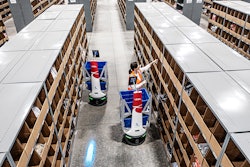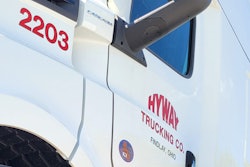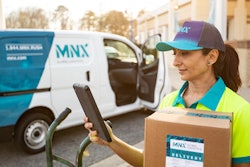Just in time for the holiday season, UPS (CCJ Top 250, No. 2) is on a shopping spree and its latest pickup should come in handy for those unwanted Christmas gifts.
UPS on Wednesday agreed to acquire Happy Returns from online payment giant PayPal. Happy Returns is a U.S.-based software and reverse logistics company that enables frictionless, no-box, no-label returns for merchants and consumers. Terms of the deal were not disclosed.
UPS CEO Carol B. Tomé said the acquisition is one she expects will streamline the return process, long a pain-point for online consumers and retailers.
“By combining Happy Returns’ easy digital experience and established drop-off points with UPS’s small package network and footprint of close to 5,200 The UPS Store locations, box-free, label-free returns will soon be available at more than 12,000 convenient locations in the U.S.," she said.
Happy Returns CEO and co-founder David Sobie will continue to lead the business for UPS after the deal closes by year end.
Happy Returns, with more than 800 merchant customers, offers a full stack of returns solutions, powered by software and fully scaled reverse logistics operations that facilitate frictionless no-box returns, reduce the cost of e-commerce for all players and create a more efficient, sustainable supply chain. In a few steps, users can access a returns portal, make a box-free return at the most convenient location and have their item shipped, sorted and returned to the merchant.
UPS in September announced its plans to acquire MNX Global Logistics, a global time-critical logistics provider.
According to its third annual "Returns Happen" study released earlier this month by Happy Returns, the popularity of in-person box-free returns is growing – with 67% of consumers ranking in-person returns as the No. 1 preferred return option, up 26% from last year. In addition, 90% of consumers say they avoid or refrain from shopping with retailers who offer mail returns as their only return option.
This increase in the preference for in-person returns, according to Sobie, is driven in part by retailers introducing or raising return fees in an attempt to regain lost profits from the growing number of returns. According to the study, 81% of retailers started charging for at least one return method in the last 12 months. The results of these new fees have been mixed, he said, with some retailers experiencing negative impacts on sales and customer satisfaction, and others finding ways to shape their return policies to drive customer loyalty while reducing costs.
"We continue to see retailers seeking out new ways to mitigate the negative impact of returns on their business, while still meeting the needs of shoppers and maintaining customer loyalty," Sobie said. "This year's study shows that now, more than ever, retailers can achieve this balance by offering in-person, box-free returns across an extensive network of locations, with real-time item validation and immediate refunds."











